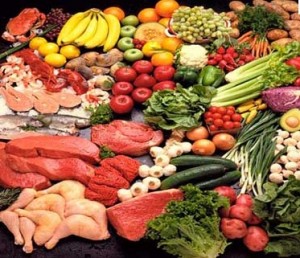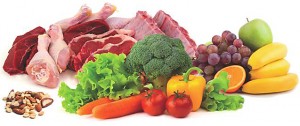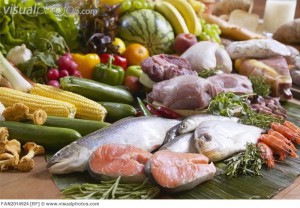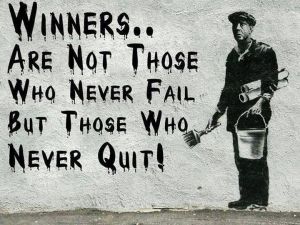
I care deeply about nutrition. I have a vested interest what I eat, what my pregnant wife eats and what our future baby will eat. I care so much because I have a strong belief that what we eat is directly responsible for our health. I also have strong opinions on what other people eat because real food is not grown in individually portioned packages. In fact, if I want someone to raise a grass-fed cow or grow non-GMO produce in nutrient rich top soil without chemical fertilizers and pesticides, then there has to be a big enough demand from a group of interested future purchasers of these products. There are other very good, socio-economic and moral reasons for me to be interested in your health as well. For example, I get personal satisfaction from helping people get out of pain and find joy living in their bodies.
Coach Greg Glassman used to say that “getting someone to change their diet is as difficult as getting them to change their sexual orientation.” People are so emotionally invested in food and the dogma around eating that talking about nutrition in social gatherings is as taboo as politics and religion. Regardless, I want you to try to eat differently. I want you to open your mind and your mouth to some new ideas. Furthermore, I want you to stop being a lemming. There is so much nonsense and conflicting “science” about nutrition that I am not going to try to convince you that eating one way is better than another way. I am going to recommend three books (see below): two that are biased and one that is not. I recommend these books because they reveal so much of the complexity of food and nutrition in the modern world vis-a-vis the government and the media and the science, not because they are “diet” books.
An example that I am sure you can relate to is the death of the term “organic.” What does that even mean any more? It use to mean something good: that the food you were buying was grown on a farm without pesticides and was somehow free of the industrial complex. Now, unfortunately, it doesn’t mean that at all. The term “paleo” is now meeting a similar end. “Paleo” was once a great descriptor of foods that predated agriculture and sustained our human ancestors for 2.5 million years. Now it is used for all sorts of gluten-free, baked goods. Stay away from buzz words!

Please ask yourself these questions before you read any further. What is food to you? Mere sustenance? Or fuel for performance? What is a diet to you? A way to lose weight? Or guidelines to ensure you get the vital nutrients you need for optimal health? How does food affect your other physical activities? Are your physical activities merely a means to lose weight or do you move and stay active for other reasons? Do you have a strong ideology about food? Are you willing to consider each piece of food on its own merits?
I encourage each of you to undertake a personal experiment to clean up your diet. Eat whole foods and avoid processed foods and refined sugars. Take out legumes, grains and dairy for 30 days. Keep a journal logging your workouts and your moods and any observations you have about your health. Take before and after pictures and weigh yourself. After 30 days add one of the things you pulled out of your diet back in and record how you look feel and perform. Do you suddenly feel great or terrible or not notice any change? This is the best way to determine those foods that are the best for you. I highly encourage you to read the resources below, but let this objective experiment be the light that guides you. Do not be swayed by dogma and propaganda. Let the data tell you what really works for you and your body. Nobody is going to care about your health and performance as much as you do. Take control of your nutrition and take control of your health.

First, get some metrics. Peter Drucker said, “If you can’t measure it, you can’t improve it.” Keep track of how you look, feel and perform. Having some subjective and objective data can allow you to determine which foods to eat and how much of them to eat. The best way to navigate all the conflicting information on the news is to do your own experiment and see what food really does to your body. I recommend some basic data points to compare before, during and after this experiment: your bodyweight, a few pictures in your underwear, a standard blood panel from your doctor, how many pushups you can do, how fast you can run a mile, and any ailments or aches and pains you have.
Second, determine what to eat. Humans are surprisingly resilient and adaptable and can survive eating dirt. So we need to narrow the field down from everything to those things that we can classify as “food”. We start with a basic list of “meats and vegetables, nuts and seeds, some fruit, little starch and no sugar.” This is from Greg Glassman’s “World-Class Fitness in 100 Words” and lays out the basic food groups that our ancestors ate. We have been eating this way for 2.5 million years and are well adapted to eat this way.
Foods that are problematic for many people are legumes, grains and dairy. So the best way to find out if you can tolerate those foods is to remove them from your diet for a month and keep records of how you look feel and perform. Then one at a time re-introduce those foods back into your diet and see if your body tolerates them. This works for any “food” or “supplement” or “strategy” that you want to implement. What you want is a clean, constant baseline from which you can observe the effects that a food or supplement have and thus limiting the variables that can often cloud your perception.
The point here is that you should experiment and find the foods that your body thrives on and then base your diet on those foods. Using a basic guideline of choosing foods that are closest to the way they showed up in nature and humans have eaten for generations. While most of us will generally do well on a diet of meats and vegetables, nuts and seeds, some fruit, little starch and no sugar, we, each of us, will have better tolerances for certain foods depending on our tastes, genetics and personal biology.
Books to read:
“Good Calories, Bad Calories: Fats, Carbs, and the Controversial Science of Diet and Health” by Gary Taubes
The Vegetarian Myth: Food, Justice, and Sustainability by Lierre Keith
“Everything I Want To Do Is Illegal: War Stories from the Local Food Front” by Joel Salatin




